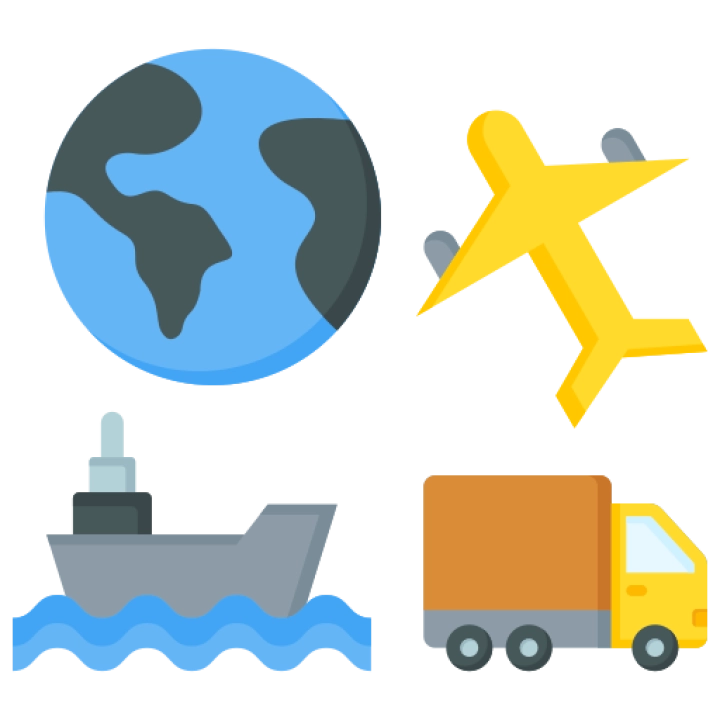College: Economics and Administrative Sciences
This program provides a comprehensive understanding of the principles and practices of logistics and international transport, focusing on the efficient movement of goods and services across global supply chains. Students will explore key areas such as supply chain management, shipping, multimodal transportation, and global trade regulations. The program emphasizes strategic planning, problem-solving, and the use of technology to prepare students for careers in logistics, transportation, and supply chain management.
Learning Objectives:
- Understand the fundamentals of logistics and international transportation.
- Develop skills in supply chain management and optimization.
- Learn techniques in shipping management and customs clearance.
- Explore the impact of global trade regulations and policies on logistics.
- Understand the principles of multimodal transport systems.
- Analyze challenges and opportunities in global supply chain management.
- Develop teamwork and communication skills for effective collaboration in logistics operations.
Main Curriculum:
- Introduction to Logistics and International Transportation
Overview of logistics and transportation and their roles in global trade. - Supply Chain Management
Study the design, planning, and optimization of supply chains. Techniques in inventory management, demand forecasting, and procurement. - Shipping and Customs Compliance
Principles of shipping, documentation, and customs regulations. Techniques to ensure compliance with international trade laws. - Multimodal Transportation Systems
Basics of land, rail, air, and maritime transport. Techniques for integrating different transport modes for efficiency. - Global Trade Regulations and Policies
Study international trade agreements, tariffs, and trade barriers. Techniques for navigating trade regulations and ensuring smooth operations. - Logistics Technology and Innovations
Utilizing technology in logistics, including IoT, blockchain, and AI. Techniques for implementing innovative solutions in transport and warehousing. - Storage and Distribution
Principles of warehouse management and distribution networks. Techniques for optimizing storage and distribution operations. - Risk Management in Logistics
Explore risks in global supply chains and mitigation strategies. Techniques to ensure resilience and continuity in logistics operations. - Sustainability in Logistics and Transport
Study green logistics and sustainable transport practices. Techniques to reduce the environmental impact of logistics operations. - Capstone Project in Logistics and Transport
Realistic project to apply acquired skills in logistics and transport. Techniques for providing comprehensive logistic solutions.
Assessment Methods:
- Case studies and research projects on logistics and transport challenges.
- Written assignments on supply chain management, trade regulations, and sustainability.
- Group projects and collaborative exercises in logistic planning.
- Participation in internships or fieldwork with logistics companies.
Recommended Textbooks:
- "Global Logistics and Supply Chain Management" by John Mangan and Chandra Lalwani.
- "International Logistics: The Management of International Trade Operations" by Pierre A. David.
- "Supply Chain Management: Strategy, Planning, and Operation" by Sunil Chopra and Peter Meindl.
- "The Handbook of Logistics and Distribution Management" by Alan Rushton, Phil Croucher, and Peter Baker.
Prerequisites:
Basic knowledge in business, economics, and geography is recommended. Suitable for students in business, engineering, and related fields.
Program Duration:
Typically 4 years, including coursework, projects, and internships.
Certification:
Graduates may earn a degree in logistics and international transport or a related field, depending on the program and institution.
Target Audience:
Aspiring logistics managers, supply chain analysts, and transportation specialists aiming to excel in global trade, logistics, and supply chain management. This program equips students with the technical, strategic, and analytical skills needed to excel in logistics and international transport, driving efficiency and innovation in global supply chains.


